In Russia there is a unique school - Nevzorov Haute Ecole, NHE (Nevzorov Haute Ecole, NHE) - Alexander Nevzorov Higher School of Riding, the principle of which is to work with a completely free horse, without exerting any coercion. The aim of the school is to maximize the horse's natural talents, to develop mental and physical abilities, to create mutual understanding and discipline in the relationship and dialogue with the horse. The school is derived from the classic Haute Ecole (from French): in the 17th century, this was the name for a riding school that practiced elements in an elevated position, elements above the ground.
- Hippologist – where to study, salaries, advantages and disadvantages
- 5 facts about the profession of a hippologist
- The first riding schools and the emergence of circuses
- The work of the preparer
- Horse trainer
- Riding school 'Khrenovo
- Training to become a hippologist
- Universities
- What does the specialist have to do?
- Work areas for the hippologist
- Advantages and disadvantages of the profession of hippologist
- Can I help you if you want to pay a larger amount?
- Career prospects in equestrian sport
- Horse: horoscope of professions
- Disadvantages of the profession of zoopsychologist
- § 17. Horse breeder 5th class
- Khrenov riding school
- Advantages and disadvantages of this profession
- The work of a horse groom
Hippologist – where to study, salaries, advantages and disadvantages
Vladimir Zhukovsky, Director of the Central Moscow Hippodrome: The horse has long been a symbol of nobility
– They say that horses are intelligent animals, but that is why they are very difficult to work with.
– For me it's easy. You can't explain it, but, for example, I know in advance what the horse is going to do.
However, I could never work with a camel. Their facial expressions are completely different than those of horses. I was recently in Dubai, where camel racing is no less important than horse racing. I attended a camel race with young camels. It was incredibly exciting! I sat in the camel box for about six hours, but I didn't understand what was going on. I couldn't predict how the camel would behave, that's all.
– How did you actually become a hippologist?
– I always walked from school to the stables at the racetrack. And when my father dragged me there by my ear, he was told: 'Don't scold the boy. 'Watch him look at the horses. This will be good for him.' Then I studied at the Agricultural Academy in Timiryazeva. I joined the first group that specialized in horse breeding. I learned from such luminaries as Kambegov, Krasnikov and Parfenov.
But of course all of this comes primarily from my inner state…. I just love it, that's all.
By the way, when my mother found out about my decision, she put it like this: 'Our Vova is a stable boy!', so that everyone began to sympathize with her. Because if the world values everything that has to do with horses and sees it as a noble profession, then our culture has lost its way. In the West, for example, no one would allow a man to handle a horse without special, very good training and good credentials. And since 1917 we have associated the word 'stable hand' with something uneducated.
Everything changed only when I put on the epaulettes of a lieutenant. They humbled and respected me. Lo and behold, I was promoted to the rank of colonel!
– What should a horse groom actually be able to do?
– Communication, care, understanding of the nature and character of the horse, nutrition, veterinary science. I also know the basics of veterinary medicine, although I am a zootechnician. This has proven useful more than once. There was an incident: high in the mountains a squadron was marching, one of the horses leaned back, collided with another, and a thorn pierced his vein. There was blood, you can do whatever you want. It's the kind of place where you can't wear anything. I had to hold it with my finger for 20 minutes until it coagulated.
– Was your horsemanship useful in the army?
- Yes, of course. A good officer is one who knows his equipment well. Our 'technology' is the horses. Don't take this as bragging, but I'm a good horse groom. This is probably the best of all my jobs and skills. My last official post in the armed forces was Commander of the Equestrian Department of the Central Sports Club of the Army, or CSKA Head Coach.
And I began my service in the 11th. A segregated cavalry regiment, the only one in our country, which has now become the President's honorary escort.
– It seems that everyone who served there were actors? Did the regiment have any combat tasks?
– It had combat tasks, which I won't talk about for obvious reasons. One of the main tasks outside of combat was filming. I worked a lot with Sergei Bondarchuk: The film adaptation of War and Peace was not possible without large units of guided cavalry.
5 facts about the profession of a hippologist
A hippologist is a specialist who works with horses. He or she is active in research:
The hippologist develops techniques and recommendations for the breeding, housing, feeding, conformation improvement and use of horses. The hippologist-scientist is not necessarily a pure theorist. The profession of hippologist, like all horse-related professions, is quite rare. All horses kept on stud farms are the result of centuries of selection and breeding.
The classification of professions lists several professions related to horse breeding:
The last two professions specialize in horse breeding. Only a hippological surgeon is able to properly diagnose a horse and provide appropriate treatment.
There is a special feature when it comes to horse professions: in order to become a successful professional, you have to be involved with horses as early as possible, that is, from childhood.
3. advantages and disadvantages of the profession
It is worth noting that in horse breeding, international experience is widely used, new breeding technologies and horse training programs are adopted. International conferences are often organized.
– Public and private stud farms;
5. professional career and prospects
A racehorse scientist can be anyone who has worked with horses with dedication and love for many years. Provided they are particularly interested in breeding and raising new breeds.
The first riding schools and the emergence of circuses
The first riding schools were founded in Europe. They demonstrated horse control and acrobatic feats. In 1772, F. Astley built his own building in London for the training of horsemen.
In 1793 a similar school was opened in Paris. However, the building was used for equestrian shows and was initially called a circus. A similar building was only built in Moscow in 1853; before that, the breeders only appeared at public festivals and fairs.
From 1819 to 1882 there was a special Bereitoria school in St. Petersburg, where horses were trained for the cavalry. However, from 1822 the facility was initially placed under the administration of the imperial court and was called Mikhailov Manege. The breeding school was later closed.
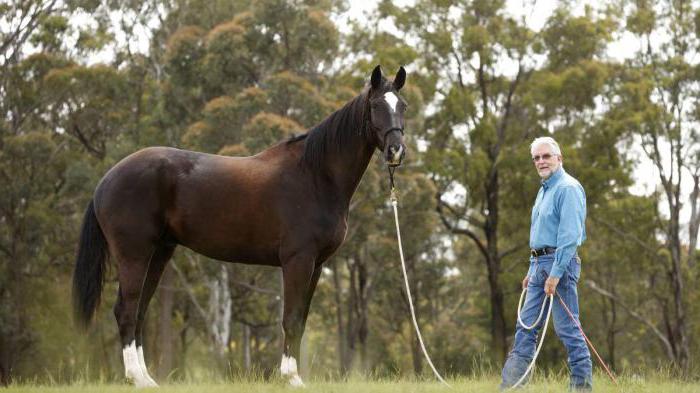
The work of the preparer
A rider is a horse trainer. He trains animals for equestrian sports, the circus and hiking. It's true that athletes prefer to work with the horse themselves. However, there are cases when an animal trained by a beekeeper even won the Olympic Games. When training horses, various elements are practiced.
A rider can work with more than one horse. They train at different times. However, the work must continue all the time. Only the intensity of the training varies.
Horse trainer
Anyone who wants to work at a state Olympic reserve school needs special training. This can be completed at the Department of Theory and Methodology of Swimming, Rowing and Equestrian Sports at the Moscow State Academy of Physical Culture or at any university that offers training to become a 'sports teacher'.
The training lasts four years. The specialist studies the peculiarities of human anatomy, physiology and psychology. The task of a trainer is to properly motivate students, prepare them for competitions and analyze the learning process. There has long been debate about what level of education a specialist should have. Some are of the opinion that he is at least a contender for a sports championship title, others are convinced that the title does not matter, but the results of the students are more important.
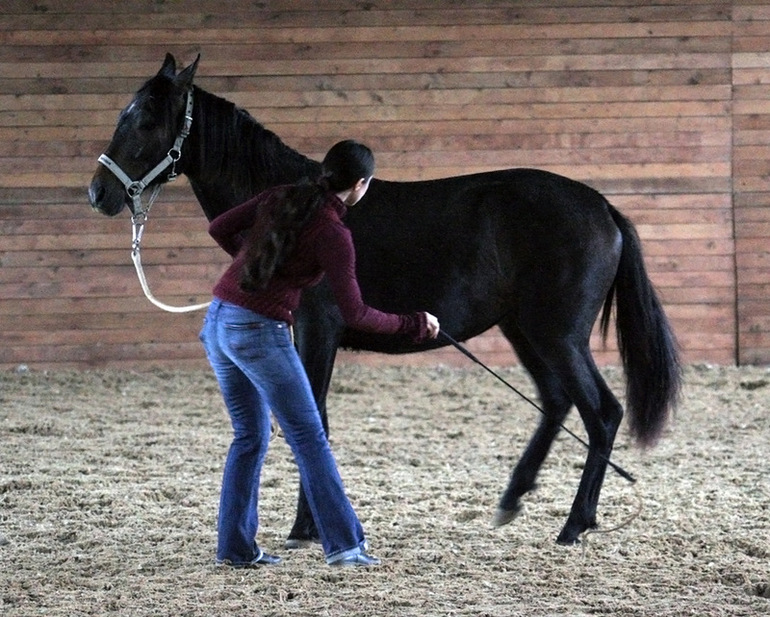
After receiving the diploma, a person receives the right to work in his field. He or she may have a specific specialization. For example, lessons with children, beginners, adults or experienced riders. Some work with a group of young people riding ponies, others specialize in preparing for show jumping or dressage.
The instructor must be able to find an approach for his students and choose the right equipment for the horses to achieve their goals. A training session can cost 2000-3000 rubles in Moscow and 1000-1500 rubles in the regions.
Riding school 'Khrenovo
It is one of the oldest educational institutions in the Voronezh region. It was founded in 1808 by Count Orlow. In 1937 it was renamed the Horse Breeding School. Today there are three areas of training:
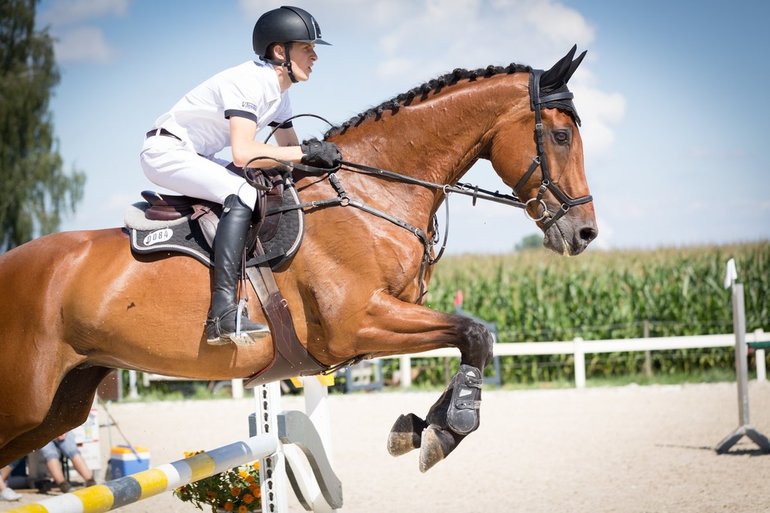
The job of the jockey and rider is to prepare the horses for starts and races. It's not just about taking exams, but also about improving performance. It is the jockey's job to do the right thing so that the horse performs at its best. It is possible to work on racetracks and stud farms. The positive thing about this job is that you have to deal with horses. You will have to spend a lot of time outdoors.
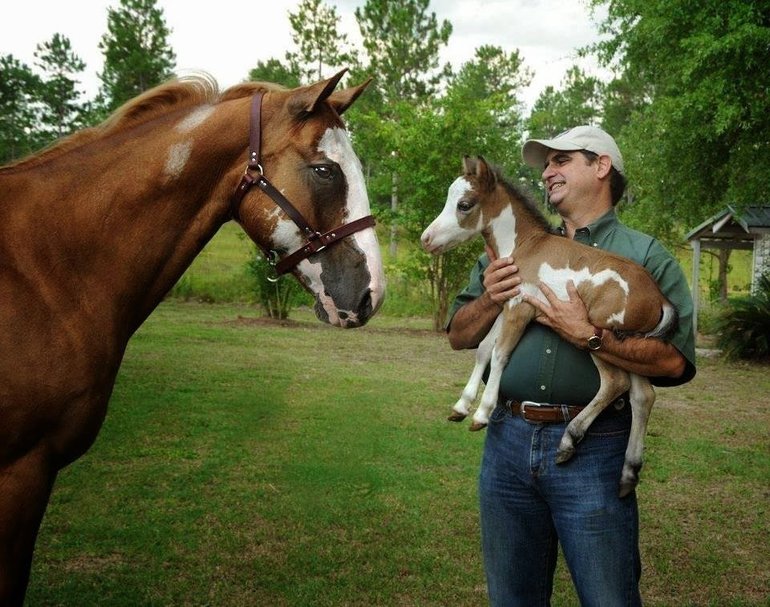
The disadvantages of the professions of horseman and jockey include:
- Low wages. The hippodromes in Russia are going through bad times and the prize money from the trials is very small.
- The working week lasts six days, and you often have to work on public holidays because the horses are not allowed to miss training.
- Races and competitions do not always take place in good weather conditions. You have to drive in cold temperatures, rain, snow, etc.
- High injury rate. Horses are unpredictable animals; they can get frightened and then kick their hooves into a seesaw or throw their rider off.
A junior veterinarian takes care of the emergency care of the animals and assists the veterinarian. The school in Chrenovo accepts students after the ninth and eleventh grades. Retraining courses are also offered. After completing these courses, you can become a farrier, trainer, inseminator, etc.
Training to become a hippologist
Higher education to become a hippologist can be completed at the KA Timiryazev Russian State Agrarian University in Moscow.
Intermediate-level horse breeding specialists are trained at the following educational institutions:
Khrenovskaya Riding School (PU-51), founded in 1882 by Count IA Vorontsov-Dashkov, a well-known horse breeder in Russia. 397740 Voronezh region, Bobrovsky district, n/n Khrenovo, Khrenovoya station of the Southeastern Railway.
Similar educational institutions are located in the cities of Bashkortostan, Moscow Region, Barnaul and Pyatigorsk.
According to international regulations, people who have passed exams and received a certificate of basic training are allowed to work with horses (training and exams). In Russia, this certification system was introduced in 2008.
Universities
- Institute of Life Sciences and Biomedicine FEFU Integrative Nutritional Science (in collaboration with FSBI 'FIC Nutrition, Biotechnology and Food Safety')
2 years 275,000 ₽/year 50 budgeted places - Faculty of Biology and Biotechnology NRU HSE Cell and Molecular Biotechnology 4 years
What does the specialist have to do?
The specialist must take care of the complete care of the horse. This includes:
- Cleaning the stables from manure, sanitary protection against various diseases;
- regular vaccinations;
- constantly keeping the premises clean;
- Caring for the horses, i.e. cleaning and washing, brushing and combing the horses;
- feeding the horses:
- Harnessing the horses under the saddle and the horses at the trot;
- provide first aid for injuries or illnesses;
- Diagnosis of various types of diseases and implementation of preventive or curative measures related to the health of the horses' wards;
- Participation in the mating of horses and monitoring and controlling their progress;
- Care of young horses.
In addition, the specialist is obliged to carry out all the work provided for by his job description and limited only by his qualifications.
Work areas for the hippologist
Police horses are the most current area of work for the racehorse specialist.
In recent years there has been a resurgence of policing on horseback. There are now groups dedicated to law enforcement in major Russian cities: Moscow, St. Petersburg, Vladimir, Omsk, etc.
Horses are well suited for patrol work. A police officer on horseback has better visibility, can catch up with an intruder where a car can't, and the large animal has the right effect on a heated crowd.
Through hippology, animals are trained not to be afraid of loud noises, bright lights and flashes. Hippology also trains the police officers who will work with these horses.
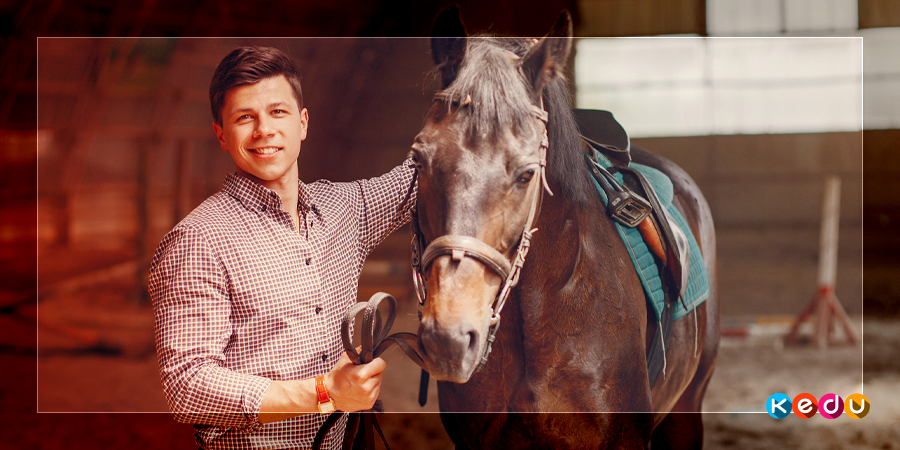
Advantages and disadvantages of the profession of hippologist
The advantages of the profession include factors such as:
[TypeError] Illegal offset type (0) /home/bitrix/source/kedu/releases/main/web/local/components/bitrix/news.list/component.php:276 #0: include /home/bitrix/source/ kedu/shared/bitrix/modules/main/classes/general/component. php:607 #1: CBitrixComponent->__includeComponent /home/bitrix/source/kedu/shared/bitrix/modules/main/classes/general/component.php:684 #2: CBitrixComponent->includeComponent /home/bitrix/source/kedu/ shared/bitrix/modules/main/classes/general/main. php:1062 #3: CAllMain->IncludeComponent /home/bitrix/source/kedu/releases/main/web/local/templates/2020kedu/components/bitrix/news/press-center/detail.php:141 #4: include(string ) /home/bitrix/source/kedu/shared/bitrix/modules/main/classes/general/component_template. php:790 #5: CBitrixComponentTemplate->__IncludePHPTemplate /home/bitrix/source/kedu/shared/bitrix/modules/main/classes/general/component_template. php:885 #6: CBitrixComponentTemplate->IncludeTemplate /home/bitrix/source/kedu/shared/bitrix/modules/main/classes/general/component.php:776 #7: CBitrixComponent->showComponentTemplate /home/bitrix/source/kedu/ shared/bitrix/modules/main/classes/general/component. php:716 #8: CBitrixComponent->includeComponentTemplate /home/bitrix/source/kedu/shared/bitrix/components/bitrix/news/component. php:216 #9: include(string) /home/bitrix/source/kedu/shared/bitrix/modules/main/classes/general/component. php:607 #10: CBitrixComponent->__includeComponent /home/bitrix/source/kedu/shared/bitrix/modules/main/classes/general/component.php:684 #11: CBitrixComponent->includeComponent /home/bitrix/source/kedu/ shared/bitrix/modules/main/classes/general/main.php:1062 #12: CAllMain->IncludeComponent /home/bitrix/source/kedu/releases/main/web/pages/press-center/index. php:31 #13: include_once(string) /home/bitrix/source/kedu/shared/bitrix/modules/main/include/urlrewrite.php:184 #14: include_once(string) /home/bitrix/source/kedu/shared/ bitrix/urlrewrite.php:2 ———-
Can I help you if you want to pay a larger amount?
No training is required to work as a horse groom, as the position is considered 'trademan' in this segment of the industry. The specialist acquires all the necessary knowledge and skills by working with horses. It is more common for an inexperienced horse groom to work with an experienced specialist.
In this case, it is impossible to acquire such a specialization in educational institutions. Anyone who wants to enter this field should therefore complete veterinary or biological training and become a hippologist, veterinarian, equine dentist or horse breeder.
Career prospects in equestrian sport
It should be noted that further development in this profession is possible only on a farm with a large number of animals. In this case, the profession of master horse manager is introduced. This specialist not only works with the animals, but also coordinates the work of the junior staff and takes care of the documentation.

The most important quality for this type of work is of course the love of horses and the fun of working with them. But other, equally important properties can also be highlighted:
Horse: horoscope of professions
Such people do not tolerate failure and cannot do routine work. Horses thrive in independent professions that do not require a strict schedule. Horses cannot be described as good performers. Rather, they tend to invent and produce new ideas. There is no discipline for them. Within narrow limits they immediately lose initiative, wait for better times and become very restless and anxious.
Horses are true entrepreneurs, rising quickly from ruins but leaving the finishing touches to others.
Disadvantages of the profession of zoopsychologist
Nowadays it is difficult to find a vacancy as a zoopsychologist. This is not just because the profession has not yet become popular: people who love their profession and love animals consciously and definitively choose this profession, which is why there is hardly any 'fluctuation' in this profession.
The job often involves a high level of emotional stress. The zoopsychologist has to deal with the problems of the human-animal relationship, which affects his own emotional state. The professional responsibility is also very high.
When working with predators, the zoopsychologist must remember that any mistake poses a risk to the animal's health and life, since predators are prone to unpredictable aggression, especially when the animal is sick or stressed.
§ 17. Horse breeder 5th class
Description of the profession. Care of broodmares, young mares and training horses at stud farms, state stud farms, hippodromes and state stud farms as well as stallions at stud farms. Feeding, watering, grazing, walking, cleaning and bathing the animals. Training young stallions in feeding, under saddle and in the team. Group training of young horses. Towing the horses after training. First aid for the animals in the event of illness and support from specialists with deboning, measuring, treatment, prevention and other activities. By training the horse's strength, be able to saddle, trot and ride the animal. Saddling and loading the horses for transport.
Important to know: Basics of breeding and raising young breeding horses; Technique for keeping unmarried, foaling and lactating mares; Instructions and guidelines for training horses; Equipment and rules for the use of training and transport harnesses and pneumatic devices for cleaning animals; Principles of herd formation and rearing; Basics of pedigree and zootechnical accounting.
Khrenov riding school
This is one of the oldest educational institutions in the Voronezh region. It was founded in 1808 by Count Orlow. In 1937 it was renamed the Technical School for Horse Breeding. Today there are three types of training:

The job of the jockey and rider is to prepare the horses for racing. It's not just about taking exams, but also about improving your results. It is through the correctness of the jockey's actions that the horse can perform at its best. You can work at racetracks and stud farms. One of the advantages of this job is being close to horses. You will have to spend a lot of time outdoors.

The disadvantages of the profession of rider and jockey are:
Low wages. The hippodromes in Russia have fallen on hard times and the prize money from trials is negligible. The working week lasts six days, and you often have to work on public holidays because the horses can't stop training. The races and competitions do not always take place under good weather conditions. You have to ride in low temperatures, rain, snow, etc. High accident rate. Horses are unpredictable animals and can become frightened and then tap the seesaw with their hooves or throw the rider off.
Read more:A junior veterinary assistant takes care of emergency care for the animals and supports the veterinarian. The school in Chrenovo accepts students after the 9th and 11th grades. Retraining courses are also offered. After that you can become a farrier, trainer, insemination assistant, etc. d.
Advantages and disadvantages of this profession
Nowadays it is very difficult to find a good and efficient groom. The 'salt' of this profession lies in several factors:
- The groom has to devote most of his time to his work; he arrives at the stable at dawn and leaves his workplace at dusk.
- Cleaning stables and horses is difficult physical work that requires good health and strength. The stables must be regularly cleaned of manure and dirt, the horses must be washed, their nutrition and health must be monitored, and they must be grazed.
- Becoming a barn operator requires a wide range of knowledge, from basic veterinary knowledge to rules for saddling, grooming and dosing.
- A stable master must regularly train and improve his qualifications and keep up to date with news and innovations in horse handling.
- Such an employee must love horses more than anything, as these animals are considered true empaths and sense the stable master's true attitude towards them.
Only people who feel the heart and soul of horses can find a common language with them and spend at least 12 hours a day with them.
The work of a horse groom
In fact, most people are very skeptical about horse care. Not everyone would think of cleaning the stables, grooming the horses, checking their condition and taking them for a walk every day. However, for people who have been involved with horses for many years, it seems to be a prestigious profession.
Statistically speaking, it is women and young girls who most often work in the stables. As horse experts say, this hard work can only be done by a person with heart. Daily close contact with these noble animals benefits the human nervous system because the benefits of dealing with horses have been scientifically proven. This hard physical work is also well paid.
- Equestrian sport for and against.
- What types of doctors are there.
- The pseudo joint is.
- Reviews of Sursil Ortho.
- How Much Does an Orthopedic Surgeon Make?.
- forearm refers to.
- Manufacture of shoe lasts.
- is liquorice.
